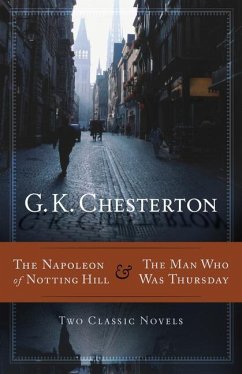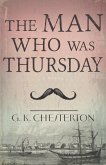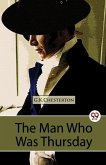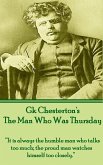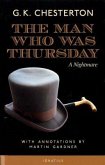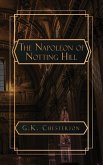Known primarily for his non-fiction, Chesterton also wrote fiction, and The Napoleon of Notting Hill and The Man Who was Thursday are two of his best-loved novels. The Napoleon of Notting Hill, his first novel, tells the story of residents of a London suburb who take up arms and declare their independence from England, with line drawings throughout. The Man Who was Thursday, his most famous novel, tells the story of a policeman who becomes unwittingly--and unwillingly--caught up in a resistance group that is infiltrating a secret organization of anarchists.
